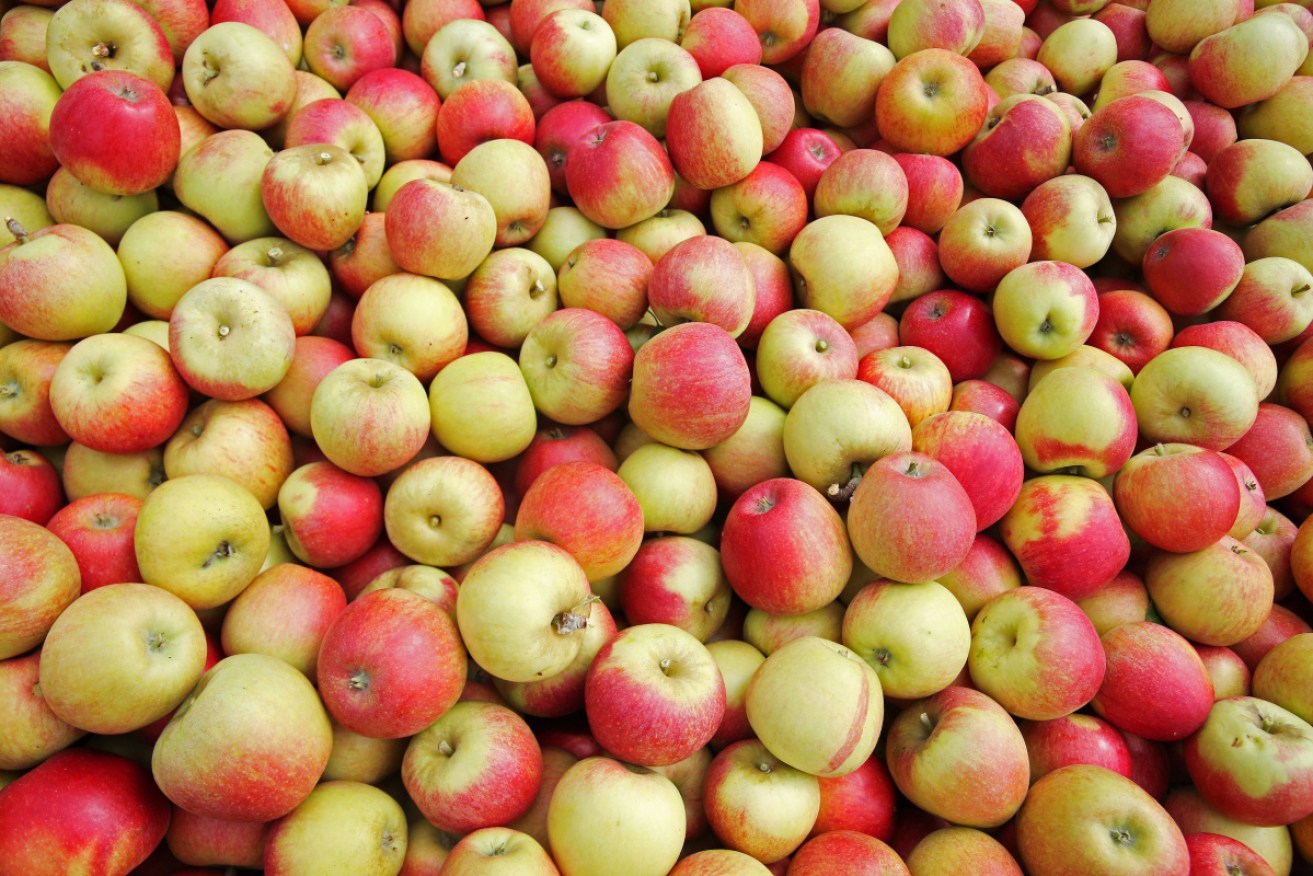Government program to send Newstart recipients to farms branded a complete failure


The $27.5 million Seasonal Work Incentives Trial stopped in July. Photo: AAP
A program to encourage Newstart recipients to fill the shortage of pickers and packers on Australian farms has been branded a failure by industry groups.
Australia’s farming industry has been plagued by a lack of workers – particularly domestic ones – for years.
So it’s not surprising that as a discussion about Newstart and ‘dole bludger’ syndrome flares, some people start calling for recipients to get their hands dirty.
Last year it went all the way to the top, with Prime Minister Scott Morrison telling those on Newstart to pick fruit or lose their payments.
“While we’re tackling the labour shortage, this also ensures job seekers on taxpayer support have no excuse to refuse opportunities,” he said.
But for the past two years, a government program to plug the farming hole with people on Newstart has been quietly running in the background.

The $27.5 million program stopped taking participants from July. Photo: AAP
The Seasonal Work Incentives Trial allowed people on Newstart to earn up to $5000 a year from farm work without it affecting their payments.
The program was designed to offer 7600 places in total.
However, it stopped taking participants last month, after only finding places for 478 people.
Those people, some of whom are still working on farms, represent just 6.29 per cent of the government’s initial goal.
Despite having funding for several thousand participants, government employment providers managed to only create 669 potential positions, in an industry plagued by an employment crisis.
More than 40 per cent of growers report not being able to recruit sufficient pickers, packers and graders at some point in the past five years, according to a national survey of vegetable growers conducted by the University of Adelaide earlier this year.
The program was demanded by Centre Alliance in exchange for the federal government’s controversial backpacker tax, and influential industry groups are now labelling it a complete failure.

The program was meant to offer 7600 places. Photo: AAP
National Farmers Federation president Tony Mahar said the group was supportive of the initiative, but it just did not work.
“It wasn’t targeted at the right areas,” Mr Mahar said.
“It wasn’t enough of an incentive. We’ve got to have incentives. It was a good try but it didn’t solve any of the problems.”
While many on payments filled the available places, the Australian Unemployed Workers’ Union spokesman Jeremy Poxon said it was not as simple as allocating people to farms.
“Mainly poor workers, unemployed workers, people without resources to be able to leave [their] home, travelling out to these sites, especially, is not feasible,” he told The New Daily.
“If it’s contract work you know it’s not going to last very long anyway.”
People may not have all-weather gear, suitable shoes or the ability to leave their homes, he said.
“Without putting in support, you’re setting them up to fail – and not just people on Newstart but these rural communities too.”
The labour crisis
Now influential lobbying groups are calling on the government to create a dedicated agricultural visa to fix the growing labour crisis in the industry.
Mr Mahar said the industry relied on backpackers, as well as migrants from the Pacific Islands.
“While the backpacker visa is designed for cultural exchange, they’re coming here for a working holiday,” he said.
“Same with the seasonal workers, that’s almost an aid program. They work and take the money back to their country. It’s not designed to address the specific needs.”
The shortage is having disastrous effects on the industry, with many growers leaving fruit on the trees, or planting less, Mr Mahar said.
“It’s just like spraying fertiliser. If there wasn’t as much fertiliser, they wouldn’t spray as much. They’re not going to plant if they’re not going to harvest their crops,” he said.
Rampant exploitation
The industry is also grappling with a crisis around the treatment of migrant workers.
Joanna Howe, associate professor in law at the University of Adelaide who wrote a report on migrants within the horticulture sector earlier this year, said she spoke to people who were paid as little as $1 an hour during her research.
“We had almost universal stories of underpayment. The worst was $1 an hour, but between $3 to $5 an hour was normal.”
Not only are they underpaid, but the conditions are often horrible, she said.
”Two young workers from South-East Asia, they experienced really terrible sexual harassment,” Associate Professor Howe said.
“Every time they left the hostel a different person had to rotate in the van, and both this young man and his girlfriend were sexually assaulted.

The industry is also grappling with how it treats migrant workers. Photo: AAP
“One British backpacker had never been so depressed or contemplated self-harm, but through the farm work, he had thought about it,” she said.
“There were rats in his hostel, eight mattresses crammed into one room.”
Many advocates for the visa also argue it will help put an end to the rampant migrant extortion across the industry.
AusVeg spokesman Tyson Cattle said the industry was banding together to stop exploitation with the new Fair Farms initiative.
“It’s a bad image – horticulture recognises we’ve got a problem at the moment. We need to improve that,” Mr Cattle said.
“What the industry has done is they’ve started to look at how we educate these growers, [and] build in a level of compliance to bring them up to speed.
“Nobody wants to see it. A lot of growers have sons and daughters who have travelled and worked across the world. They don’t want to see it.”








